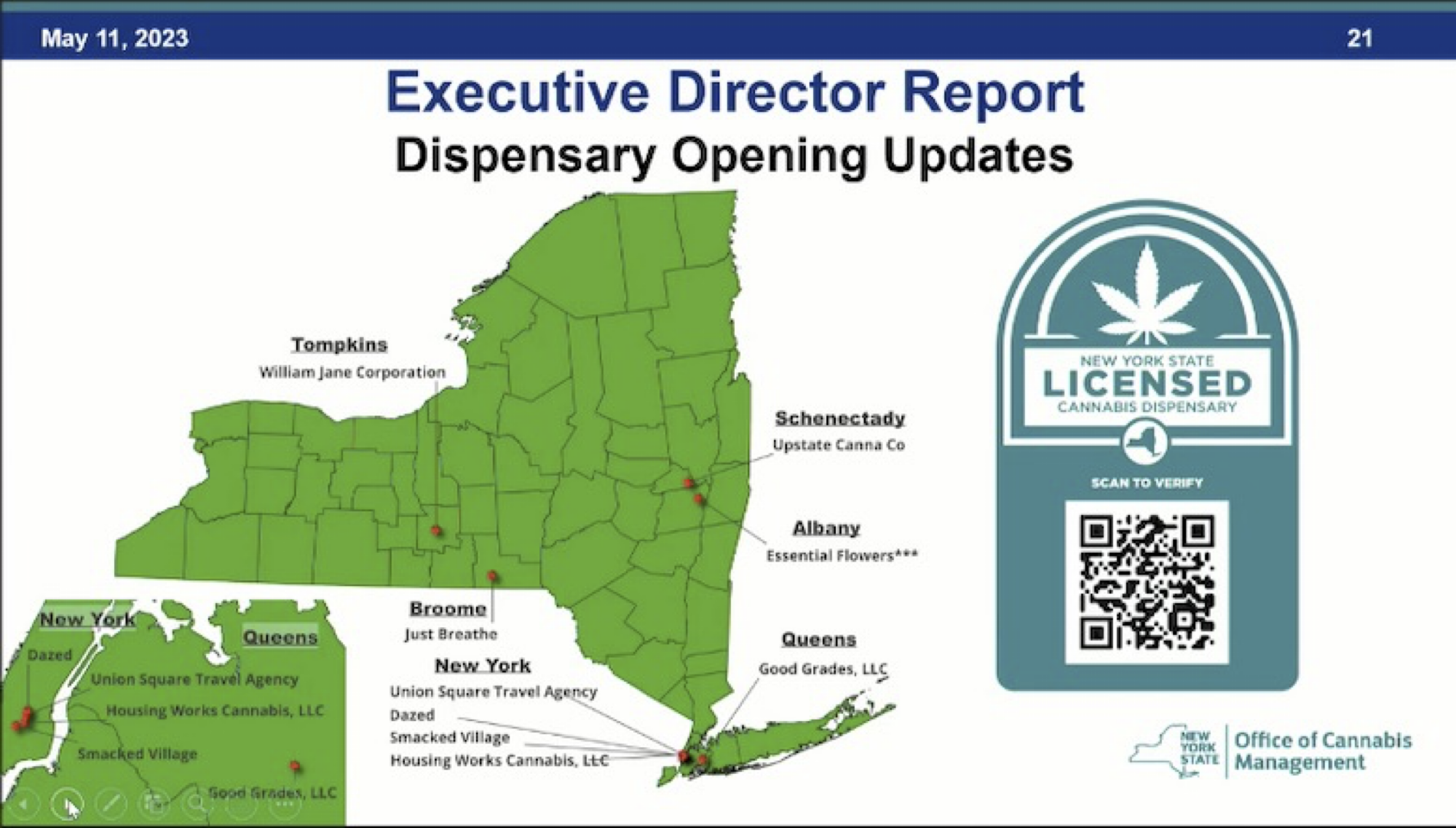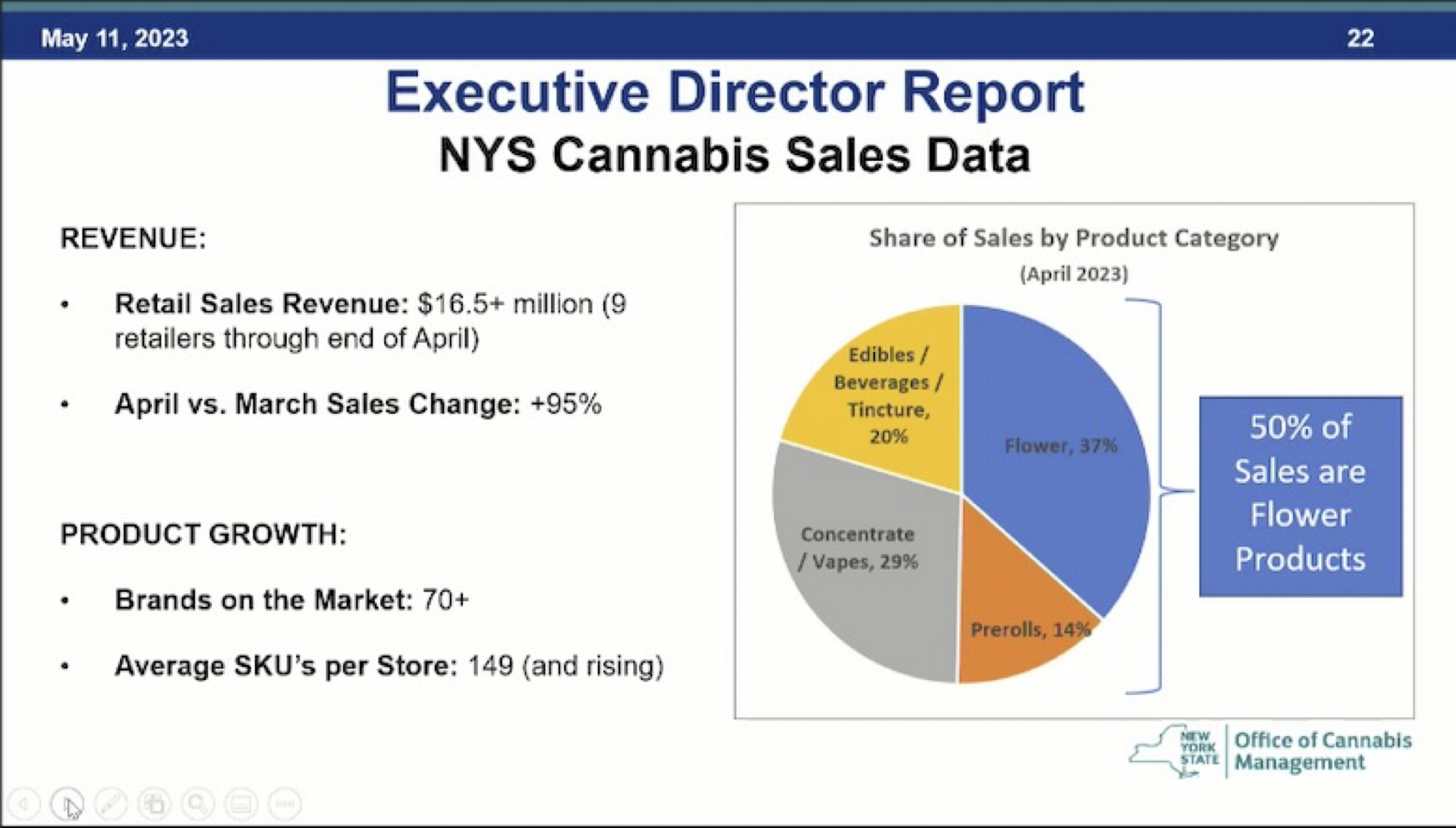New Regulations and Expanded Dispensaries: New York’s Cannabis Control Board Makes Strides
by Andrew Kingsdale
May 23, 2023

On May 11, 2023, New York’s Cannabis Control Board (CCB) met and advanced several priorities, including approving 50 conditional retail licenses, implementing a social equity plan, and introducing a new draft of proposed regulations. These initiatives aim to shape a fair and thriving cannabis market while addressing concerns and ensuring responsible practices.
Expanding Retail Licenses:
The CCB preliminarily approved fifty new conditional adult-use retail dispensary (CAURD) licensees, marking a substantial expansion of the cannabis retail landscape in New York to 215 CUARD licensees statewide. These stores will facilitate greater accessibility and availability of cannabis products for consumers, and help ease the concerns of conditional cultivators and processors who currently lack adequate outlets for their products.
Notably, 45 of the newly issued licenses were allocated to applicants in four previously underserved regions: Central NY, Western NY, Mid-Hudson, and Brooklyn. A special congratulations to one of our clients for being selected in this round; our client is now positioned to be one of the first licensed retail dispensaries in Brooklyn! (Prior results do not guarantee a similar outcome.)
Here is a map of the dispensaries already open:

Regulatory Updates:
The CCB and the Office of Cannabis Management (OCM) have collaborated to introduce a revised version of proposed regulations that address various concerns within the industry.
Notably, the rules adjust an income threshold for investors to be considered a “true party of interest” (TPI). Under a prior draft of the regulations, certain goods and service providers that received compensation exceeding $100,000 per year would be deemed true parties of interest; now, that limit has been raised to $250,000, so that TPIs include a person or entity that:
(d) consults receiving a flat or hourly rate of compensation from an applicant or licensee under a goods and services agreement, unless such compensation exceeds the greater of the following, as measured in that calendar year:
(1) 10% of the gross revenue of such applicant or licensee;
(2) 50% of the net profit of such applicant or licensee; or
(3) $250,000 from such applicant or licensee;
(Revised Proposed Regulations § 118.1(a)(105), definition of “True Party of Interest”)
The 10% and 50% measures remained unchanged.
Other notable amendments include:
- allowing ROs to participate in the adult-use market after December 29, 2023 (a significant shift from the previous three-year waiting period);
- expanding microbusiness offerings to include the purchase of flower from licensed cultivators as well as “branding, including for the exclusive performance of white labeling agreements”;
- new rules for “limited retail consumption facilities,” which will be distinct consumption areas located within or adjacent to a retail dispensary or microbusiness premises;
- new rules authorizing temporary events to be held by on-site consumption, adult-use retail dispensary, microbusiness, and ROD (registered organization with dispensing) licensees; and
- expanded guidelines for retailers’ use of third-party e-commerce platforms and aggregators.
These revised draft regulations will now undergo a 45-day public comment period. Mostly likely the CCB will then approve these regulations substantially as drafted, with the goal of opening license application around Labor Day.
Social Equity Plan:
Recognizing the importance of social equity in the cannabis industry, the OCM presented a comprehensive social and economic equity plan. The plan acknowledges the need for inclusivity and fairness within New York’s cannabis market and highlights existing resources available to support social equity cannabis entrepreneurs.
Market Update:
Toward the end of the CCB meeting, OCM’s Policy Director John Kagia presented some data regarding the existing regulated market, including consumer demand for different product types. Kagia noted that New York demand for pre-rolls and edibles has been relatively high compared to nationwide statistics, evidencing that New Yorkers value convenience and portability. Here is a slide he presented at the meeting:

Conclusion:
New York’s cannabis industry is witnessing significant progress with the approval of additional retail licenses, the implementation of a social equity plan, and the introduction of updated regulations. These advancements aim to promote inclusivity, fair market participation, and responsible practices. As the industry evolves, it is crucial to strike a balance between regulatory oversight and fostering a vibrant and equitable cannabis market that benefits consumers, businesses, and communities across the state.
This information is provided as a public educational service and is not intended as legal advice. For specific questions regarding New York’s cannabis laws and regulations, please contact the Law Offices of Omar Figueroa, Inc., P.C. at info@omarfigueroa.com to schedule a confidential consultation.
ATTORNEY ADVERTISING: Andrew Kingsdale is the attorney responsible for this advertisement. Prior results do not guarantee a similar outcome.
